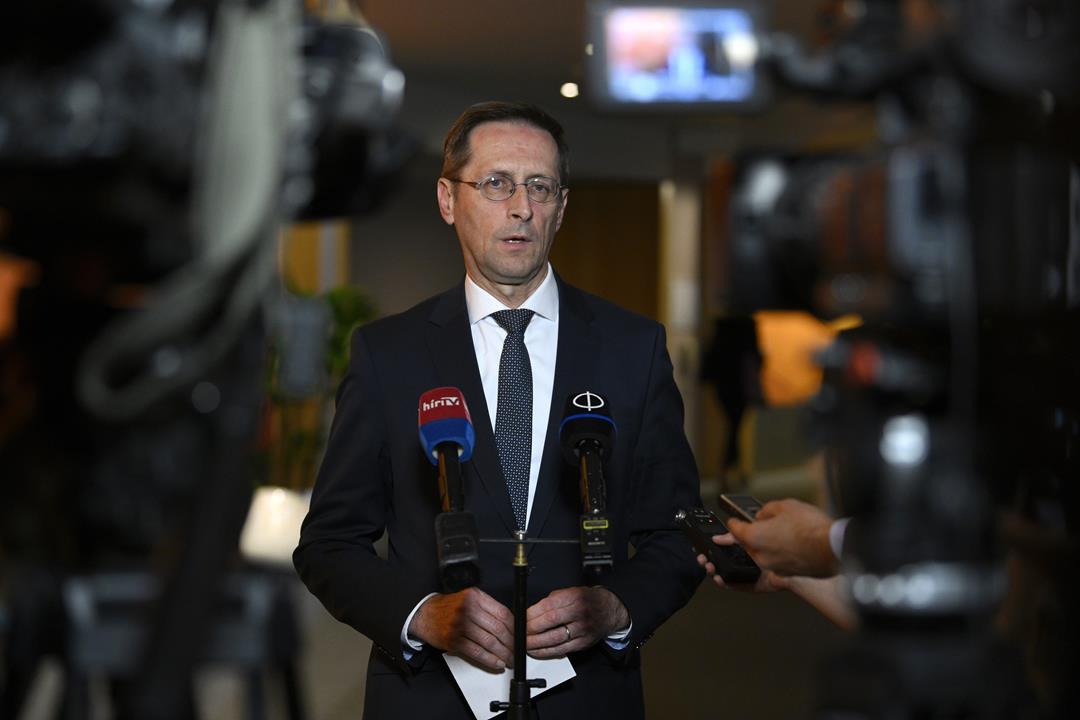Orbán cabinet sticks to economic neutrality, refuses to join blocks, finance minister Varga said
With the policy of economic neutrality and the government’s strong mandate, Hungary will be able to stay out of the economic cold war despite external pressure, Finance Minister Mihály Varga said at an event in Zalakaros, western Hungary, his ministry said on Saturday.
The finance minister said Hungary had consciously followed the path of connectivity since 2010, which has yielded its results by now.
Thanks to the work-based and open economic model launched a decade ago, one million new jobs have been created, real wage growth has been around 60 percent since 2010, and economic growth has more than tripled, he said.
Varga said these results have been possible because the government recognised in time that it was not enough for the Hungarian economy to look in one direction, other markets were also needed, and thus the policy of opening to the East was born.

It is thanks to this, among other things, that Hungary’s foreign trade doubled over one decade and three-quarters of our products are exported, Varga said.
He warned that all trade data show that the West cannot exist without the East, and therefore the isolation of Europe is not only a dead end, but in reality it is not even possible.
Economic neutrality key
On economic neutrality, Varga said it is also an important element in Hungary’s financing as the structure of the state debt has been radically transformed since 2010. The share of Hungarian families has been increased from 3 percent to over 20 percent while the share of foreigners has been reduced from 65 percent to below 40 percent, while external sources have been diversified, involving China, Japan, and also Qatar into financing the state debt.
To sum it up, Varga said Hungary is of the position that cooperation, rather than the formation of blocs should be the norm, and efforts should be made to ensure that Europe also returns to this as soon as possible.
Mutual understanding essential for successful EU, EU minister said
Mutual understanding among European Union member states is essential for the success of the bloc, János Bóka, the EU affairs minister, said on Friday, adding that the work done by researches contributed significantly to this understanding. Apart from the specific tasks it comes with for the government, Hungary’s presidency of the Council of the European Union also provides scientific communities, professors and experts with research topics, Bóka said on Facebook after the studies on Hungary’s EU presidency compiled by the Central European Academy’s (CEA) international research groups became available.
He said knowledge of the current research studies was crucial in order to understand the complex economic, social, cultural and political trends that come with European integration. Bóka said that in 2023 the CEA set up international research groups comprising foreign and Hungarian professors and researchers to analyse the priorities of the Hungarian EU presidency. The researchers approached the presidency’s priorities from the perspective of the central European scientific communities, he said, noting that multiple conferences were organised and papers published.
Of the more than 120 studies carried out by the central European research community, five volumes were put together, which mainly dealt with the supranational interpretation of the rule of law, economic governance, demography, migration and the common security and defence policy.
Read also:






If the policy works, stick to it.
@mariavontheresa – if you´re small enough, you manage to fly under the radar and nobody forces you to pick sides …
Question of time, the world will catch up with Hungary, at some point.
Not even accounting for a potentially isolationist USA, which our Politicians appear to be excited about. Be careful what you wish for!